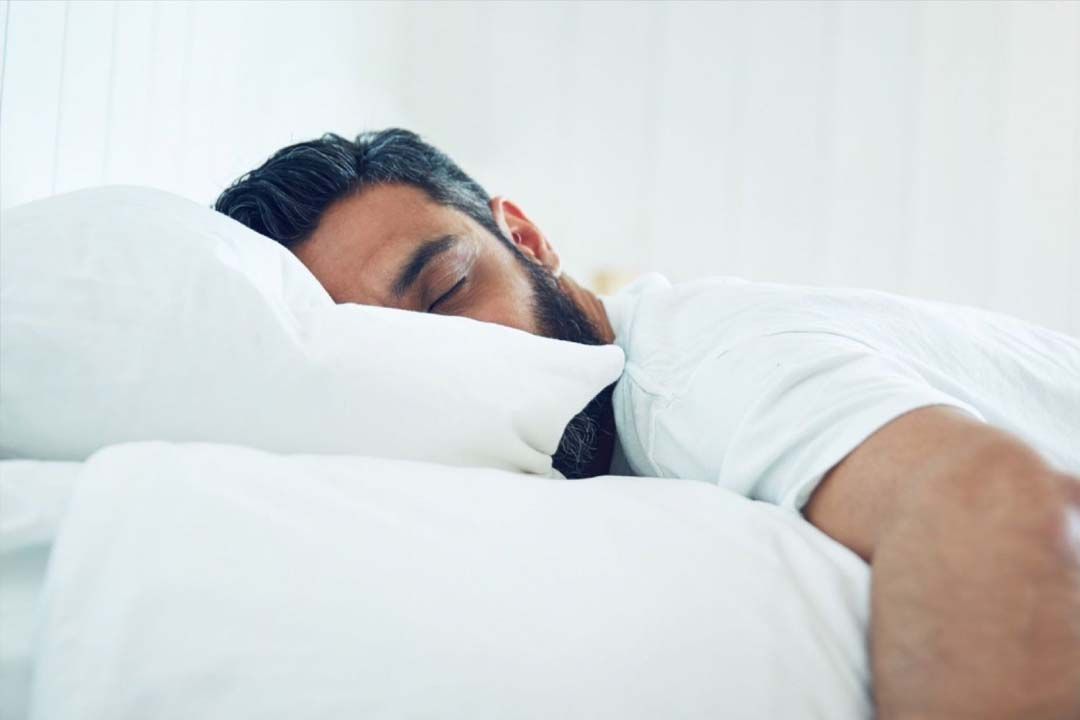Are you aware of the saying on “Sleeping with one eye open”? It’s a touch of metaphoric view about staying alert—and a method to express very light disturbed sleep.
However, sleeping with eyes wide open is more than a metaphor. It’s a genuine sleep state—identified as nocturnal lagophthalmos—and it is more prevalent than you may think.
What Causes Sleeping with One Eye Open
The National Sleep Foundation concludes that as diverse as 25% of individuals are sleeping with one eye open. It might appear like just a mysterious sleep characteristic.
However, there are four foremost causes why you are likely to sleep with one eye open and is often a sign of an underlying medical condition.
 Sleeping with One Eye Open
Sleeping with One Eye OpenSleeping with one eye open
Unihemispheric sleep
Unihemispheric sleep is while one half of the brain rests while the other is alert. It frequently occurs in unsafe circumstances, if some sort of security is necessary.
Unihemispheric sleep is most prevalent in particular marine mammals (so they can keep moving while they are asleep) and birds (so they can sleep on shifting flights).
There’s a piece of data that humans have a Unihemispheric sleep in unusual situations. In a sleep survey, data reveals that one brain region is in less profound sleep than the other through the first night of the unusual condition.
As one-half of the brain hemisphere is alert in unihemispheric sleep, the eye on the side of the body in which the conscious hemisphere of the brain handles might linger open throughout sleep.
Impact of ptosis surgery
Ptosis is while the uppermost eyelid hovers atop the eye. A few kids are born with this infirmity. In grown-ups, it emerges from the levator muscles, which hold up the eyelid, becoming strained or parting. Here are the following causes:
- aging
- eye injuries
- surgery
- tumor
In case your eyelid hovers quite to restrict or hinder your normal vision, your doctor might advise operation to either compress the levator muscle or join the eyelid to another muscle that can further elevate the eyelid.
One implied complexity of ptosis surgery is an overcorrection. It might direct you not to be capable of closing the eyelid that is already corrected. In this situation, you might begin to sleep with one eye open.
This side outcome is most familiar with a kind of ptosis surgery termed frontalis sling fixation. Practiced if you have ptosis and weak muscle function. This side effect is ordinarily unstable and will settle within 2 to 4 months.
Nocturnal lagophthalmos
The medical terminology for sleeping with one eye open while one closed is nocturnal lagophthalmos. One cause that appears is complications with the facial muscles or nerves that make it tough to have the eyes fully shut. It can likewise occur because of restrictions with the skin near the eyelids.
If people sleeping with one eye open while dozing, their eyes can drain out. Without sufficient lubrication, the eyes are extra sensitive to infections moreover can become damaged and infected.
People might encounter the following:
- redness
- blurred eyesight
- soreness or a burning sensation
- scratchiness
- sensitivity to light
- sensing as if something is in the eye or rubbing against it
- distressed sleep condition
 Sleeping with One Eye Open
Sleeping with One Eye OpenNocturnal lagophthalmos causes
It might appear uncommon, yet nocturnal lagophthalmos is a kind of facial paralysis; it includes the orbicularis muscle within the eyelid and might be transient or persistent. It is the result of multiple things like:
- Bell’s palsy
- tumor
- stroke
- autoimmune disorders, such as Guillain-Barré syndrome
- an unusual neurological infirmity called Moebius syndrome that affects the muscles regulating facial including eye movement
Shock, trauma, or operation can also follow in injury and paralysis to facial muscles and nerves. Infections can be less common causes, and these might involve:
- Lyme disease
- polio
- leprosy
- diphtheria
- botulism
- mumps
- chickenpox
Graves’ ophthalmopathy, where the eyes swell or project, can make it challenging to shut the eyes. Very compact upper or lower eyelashes might block the eyelid from shutting entirely, though this is unusual.
There is not perpetually a cause or underlying infirmity that causes nocturnal lagophthalmos. It can also be hereditary.
Lagophthalmos might also emerge after experiencing upper blepharoplasty. Blepharoplasty is a method applied to eliminate excess skin on the upper eyelid that usually happens with aging. The technique can assist you to see better.
 Sleeping with One Eye Open
Sleeping with One Eye OpenDamaged eyelid muscles
A few infirmities can harm the tissues or nerves of a single eyelid, driving one to sleep with one eye open. These comprise:
- tumor removal surgery
- stroke
- facial trauma
- particular infections, such as Lyme disease
What happens if you Sleep with One Eye Open
If nocturnal lagophthalmos is present, your eye loses the shield of a shut lid and gets dehydrated and opened to external stimuli. This can direct to:
- Eye disorder
- Pink eye
- Damage, including scratches to the eye
- Corneal degeneration, including cuts or ulcers
How to handle the symptoms induced by Sleeping with One Eye
Try applying eye drops or ointments to nourish your eyes and stay lubricated. This will overcome most of the indications you might experience. Ask your physician for a prescription. Therapy that will prevent you from sleeping with one eye open relies on the foundation. Corticosteroids might aid with Bell’s palsy, although it settles typically on its own within two weeks to a few months. Ptosis surgery impacts and unihemispheric sleep too customarily go away on their own.
You can try taping your eyelids downwards with pharmaceutical tape. Ask your doctor to give you the most secure way to do this.
In a few cases, you might require surgery to solve the concern. There are two kinds of operation:
- operation on your levator muscle, which will serve your eyelid move and shut normally
- embedding a pressure in your eyelid, which promotes your eyelid close fully
Don’t be hesitant to consult your doctor if you are experiencing lagophthalmos. Sleeping with eyes open is a disorder. At times it isn’t easy to recognize, as your eyes could be dry due to distinct conditions such as dry eye syndrome.
Nevertheless, the consequences of sleeping with one eye open can be severe. Medications could significantly enhance your essence of life. You’ll eventually get the severe and peaceful shut-eye you deserve!
Also Read; Are You Biting Tongue In Sleep?

